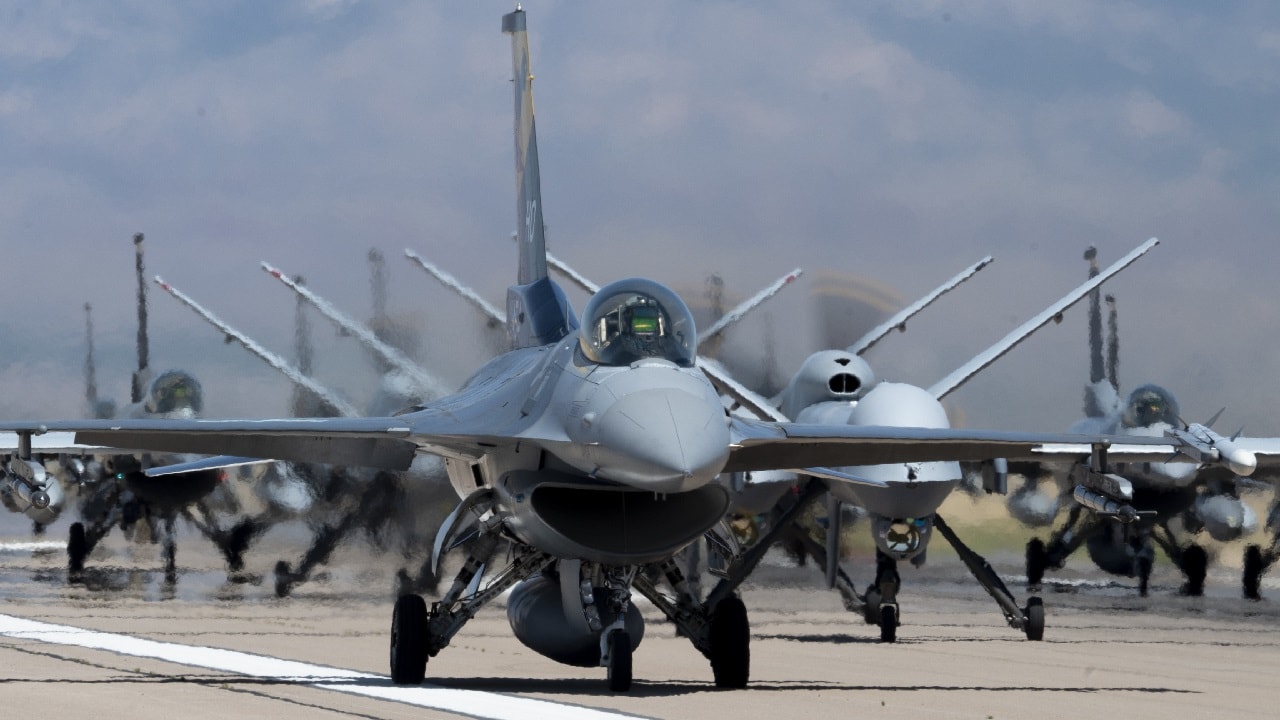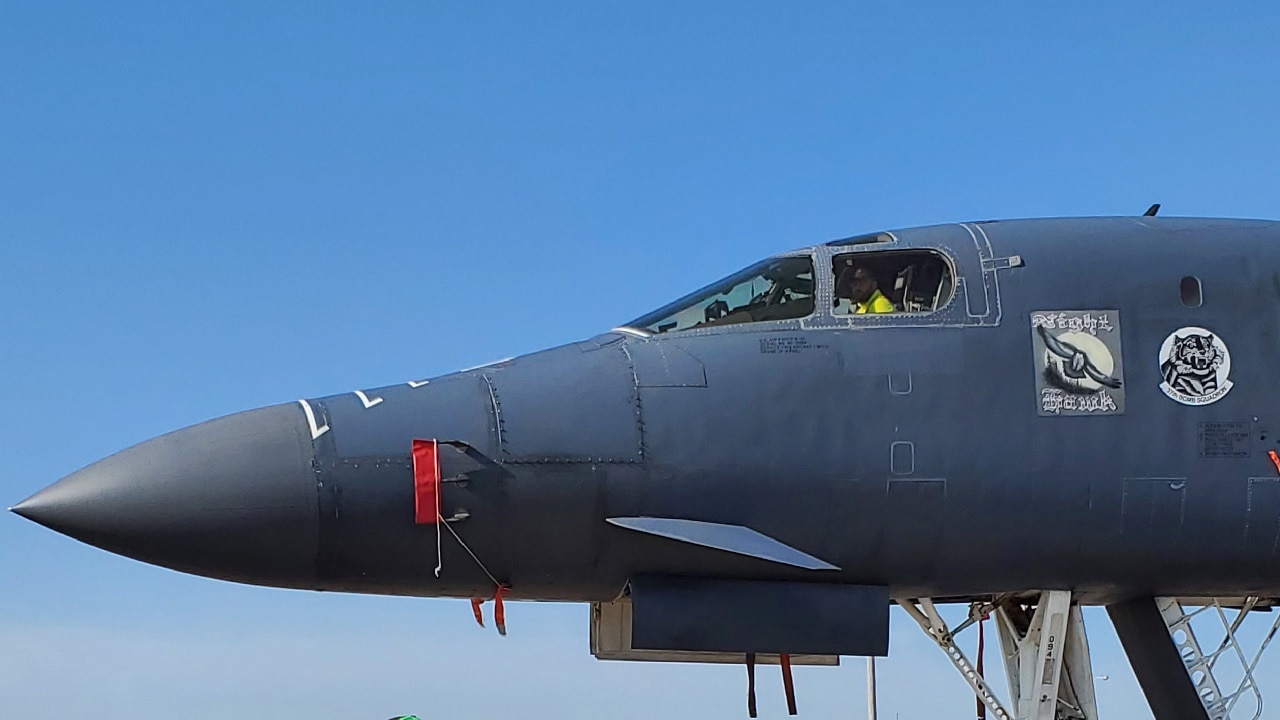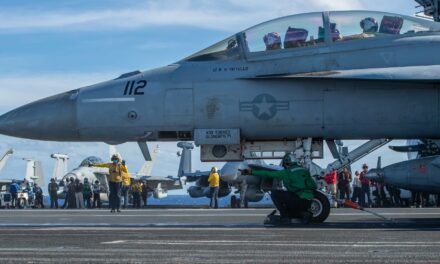We support our Publishers and Content Creators. You can view this story on their website by CLICKING HERE.
World War III in 2025? The year 2024 is promising to leave a dangerous legacy for its successor. Not in decades has the world witnessed a more dangerous international environment, with unsettled, ongoing conflicts in some of the world’s most critical regions. It will take deft, mature statesmanship to avoid even greater conflict in 2025, but the situation that we find ourselves in demonstrates that deft statesmanship is in short supply.
5 Places World War III Could Start in 2025
No one wants another global conflict, but in some ways we are already in a potential World War III. The Russia-Ukraine War, one of the largest conventional conflicts that the world has seen since World War II, has had far-reaching global effects. These have necessarily touched upon the parts of the world where Russia, China, the European Union, and the United States have interests, which in effect is the entire international system. None of the conflicts discussed here are separate from the others; just like the different theaters of WWII, they each have an effect on the balance of power and threat in the other regions.
Russia-Ukraine
We are three months short of the three-year anniversary of Russia’s invasion of Ukraine, and an end to the war is still hard to foresee.
Russian forces have resumed the offensive and are taking significant swaths of Ukrainian territory, but evidently not enough to threaten the integrity of the Ukrainian state.
For its part, Ukraine has taken advantage of permission from the Biden administration and its patrons in Europe to launch long-range strikes against targets deep in Russia. Russia has responded to this by launching the first operational conventional MIRV-equipped missile attack against Ukraine.
Tensions between Russia and the West (including both the United States and the European Union) remain at all-time highs. The Russian economy is showing signs of severe deterioration, which may be forcing Moscow into the conduct of high-cost, high-risk military operations.
In other words, the worst war the world has seen in decades could still grow in intensity, and could still draw other countries into its maw.
The Wars of October 7
The fallout from the dramatic and deadly attacks of October 7, 2023, continues to destabilize the Middle East.
The attacks sparked an intense war between Israel and Hamas in Gaza, followed by an intense conflict between Israel and Hezbollah in Lebanon. Along the way, Israel and Iran exchanged strikes, and the Houthi movement in western Yemen launched an anti-shipping campaign into the Red Sea. Some theaters of the conflict seem to be cooling down, with Israel and Hezbollah having reached an uneasy ceasefire and the IDF running out of targets in Gaza.
U.S. Army Image. Image Credit: Creative Commons.
Prospects for escalation between Iran and Israel remain dangerously high, however. Iran’s relationship with Russia has improved dramatically over the course of the conflict, as Tehran has supplied Moscow with much-needed drones and missiles in return for advanced military technology. Iran may also decide that, having failed to deter or defeat Israeli attacks, it needs to go for broke on its nuclear program. Such a decision would invite further Israeli attacks, potentially supported by the United States and the Gulf monarchies.
China-Taiwan: The Path to World War III?
In some ways, the quiet that continues to reign over the Taiwan Straits is more frightening than the chaotic symphony of the Russia-Ukraine War.
The political conflict is essentially irresolvable, and the opposing sides are preparing for war as if it is inevitable. China continues to rapidly expand its navy, in particular its amphibious assault capabilities. Taiwan and the United States are working on systems and tactics that would make holding a beachhead impossible for the People’s Liberation Army. At the same time, commerce continues virtually unchecked across the Straits.
It is unlikely that China will be prepared to assault Taiwan in 2025. However, China’s calculus could change if developments in other parts of the world take a turn or if President Trump takes steps to worsen ties between Washington and Beijing dramatically.
Any war over control of Taiwan is likely to expand to include the United States and Japan rapidly and will immediately carry the threat of the use of nuclear weapons.

Forty-nine F-16 Vipers and MQ-9 Reapers assigned to the 49th Wing line up on the runway during an elephant walk at Holloman Air Force Base, New Mexico, April 21, 2023. The 49th Wing is the Air Force’s largest F-16 and MQ-9 formal training unit, building combat aircrew pilots and sensor operators ready for any future conflicts. (U.S. Air Force photo by Tech. Sgt. Victor J. Caputo)
North Korea-South Korea
Pyongyang’s decision to intervene directly in the Russia-Ukraine War shook the always tense relationship on the Korean Peninsula.
North Korea’s participation in the war seems to guarantee a quid pro quo from Moscow, giving the Democratic People’s Republic of Korea (DPRK) the patron that it has sought since the collapse of the Soviet Union.
The overall effect of Russian support for North Korea remains uncertain, but it will undoubtedly help shore up the DPRK’s energy situation and make it easier for Pyongyang to acquire advanced military technology. It may also make North Korea more adventurous with respect to its relations with the Republic of Korea (ROK).
For its part, South Korea is considering expanding its relationship with Ukraine as a response to the deployment of North Korean troops. Moreover, South Korean domestic politics have been shaken by an apparent attempted autogolpe, in which President Yoon Suk Yeol cited the North Korean threat as justification for the imposition of martial law.
The eventual fallout from these decisions is impossible to predict, but could spell considerable danger for crisis stability on the Peninsula.
Syria
Syrian President Bashar Al-Assad took pains to stay out of the Wars of October 7, even as Israeli jets and missiles pounded Iranian installations within Syria.
His reluctance may well have been based on concerns about the stability of his regime. These concerns were dramatically confirmed last week when the city of Aleppo fell to a coalition of rebel groups. This has left the Syrian Arab Army and its Russian and Iranian allies scrambling to mount a defense against advancing rebel forces. The rebels themselves are a hodgepodge of different groups, each with its own backers and its own agenda.

A B-1B Lancer, tail number 86-0094, is moved across Douglas Blvd. to the Maintenance Repair and Overhaul Technology Center (MROTC) to receive an initial portion of Gate 1 of programmed depot maintenance April 21. 567th AMXS personnel will perform three days of maintenance which include single system checks on 40 individual actuators validating voltage outputs as
well as interrogating each actuator for hydraulic leaks. After single systems are completed, the horizontal stabilizers will be removed from the aircraft. This is the first time that horizontal stabilizers have ever been removed at the MROTC. Once complete, the aircraft and horizontal stabilizers will be brought back across Douglas to the 569th AMXS strip facility for plastic media blasting. Once stripped, the horizontal stabilizers will be routed to the 76th Commodities Maintenance Group for overhaul and repairs. (U.S. Air Force photo/Kelly White)
The Syrian Civil War drew in much of the region at its height during the 2010s, and it is not difficult to see Russia, Turkey, Israel, Iran, Jordan, and the United States intervening in some fashion.
If the Assad government falls from either internal or external forces, the entire region could be thrown into chaos, possibly reigniting the Israel-Iran conflict and drawing Turkey into direct combat.
World War III: Could It Happen Next Year?
We can take some solace in the fact that wars rarely happen by accident. No one really wants a Third World War. Every major player has a particular set of goals and outcomes that it would like to pursue, and either overthrowing the global system or imposing it in violent fashion is outside of those pursuits.
Nevertheless, it is often difficult for leaders to grasp the global impact of their decisions; a bomb dropped on Kyiv may cause a thunderstorm in Tehran or a cyclone over Taipei. We can hope that the New Year will bring a deep breath, a new perspective on these conflicts, and new hope for heading off World War III.
About the Author: Dr. Robert Farley
Dr. Robert Farley has taught security and diplomacy courses at the Patterson School since 2005. He received his BS from the University of Oregon in 1997, and his Ph. D. from the University of Washington in 2004. Dr. Farley is the author of Grounded: The Case for Abolishing the United States Air Force (University Press of Kentucky, 2014), the Battleship Book (Wildside, 2016), Patents for Power: Intellectual Property Law and the Diffusion of Military Technology (University of Chicago, 2020), and most recently Waging War with Gold: National Security and the Finance Domain Across the Ages (Lynne Rienner, 2023). He has contributed extensively to a number of journals and magazines, including the National Interest, the Diplomat: APAC, World Politics Review, and the American Prospect. Dr. Farley is also a founder and senior editor of Lawyers, Guns and Money.

 Conservative
Conservative  Search
Search Trending
Trending Current News
Current News 





